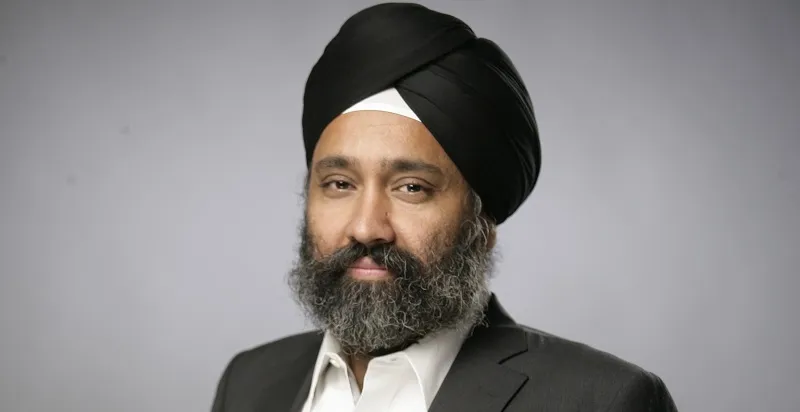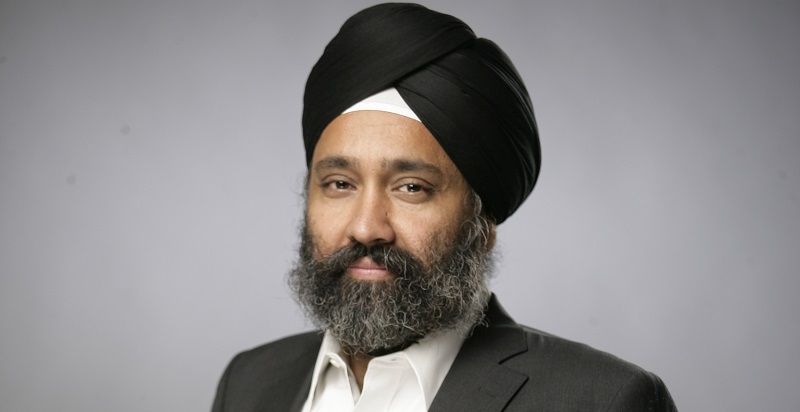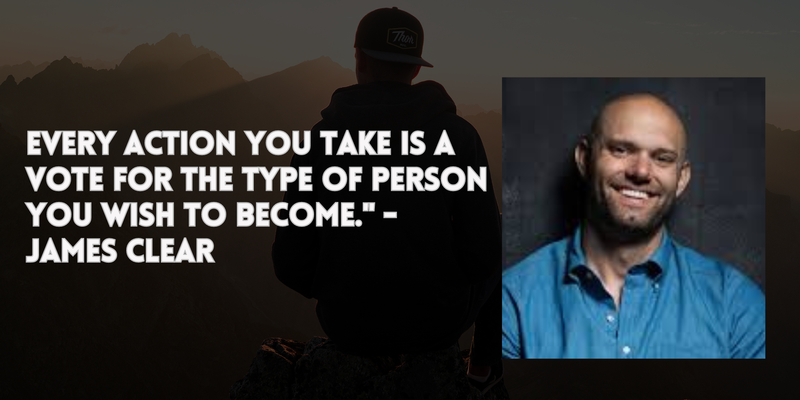How a network of startup founders can help entrepreneurs become better decision-makers
Wharton Professor Karthik Hosanagar and Iron Pillar Fund Partner Mohanjit Jolly talk about the power of networks and how they groom entrepreneurs into building sound institutions.

Mohanjit Jolly, partner, Iron Pillar
Productivity consultant David Allen, who is best known for creating a time management method, was aptly quoted as saying: "You can do anything, but you can’t do everything."
While entrepreneurs play a pivotal role in making their startups take off, they’re not immune from making mistakes. Beyond capital, they need people who can take companies from zero to hundred. And that has been the experience of people who have built startups and have been founders themselves.
These include Sandeep Johri (CEO of Tricentis), Lars Nilsson (CEO, Salessource former VP Global Inside Sales, Cloudera), Chris Reed (Head of Strategy and Innovation at Equian - Optum), Chris Yeh (Author of Blitzscaling), Cyrus Wadia (Chief Sustainability Officer, Amazon), and Dan Decasper (General Manager, ) who have shaped the growth of the startup ecosystem across the world.
They will join 18 other entrepreneurs who are now going to be part of the Iron Pillar Network – an initiative to support startups that have already raised Series A and Series B funding rounds from the Iron Pillar Fund.
Mohanjit Jolly, Partner, Iron Pillar and Karthik Hosanagar, Professor - Marketing, The Wharton School, University of Pennsylvania, who is also part of the IPN, spoke to YourStory about why bringing 25 mentors and senior entrepreneurs was important to the startups in the Iron Pillar portfolio. The duo tells why entrepreneurs need a sounding board and talk about the role of the coach in guiding them to their goals, rather than getting involved in operations.
"At every stage, an entrepreneur requires high-level support and this network will be there to provide functional, operational, and technical support to these founders in our portfolio," says Mohanjit Jolly. The fund has invested in companies like , , and .
Here are the excerpts of the interview:
YourStory (YS): What does the network do?
Mohanjit Jolly (MJ): The Iron Pillar Network (IPN) aims to mentor and advise portfolio companies. This is a key differentiator for Iron Pillar in addition to the geographic reach across Asia, Middle East, Europe, and the US that the team members bring to portfolio companies. These seasoned individuals have strong links to the fund and technology businesses in India and abroad.
They represent a blend of CXO level technology executives, successful entrepreneurs and academics who will leverage their business and domain expertise to provide strategic advice to the portfolio companies.
Collectively, the Iron Pillar Network will assist on a range of issues, which include views on macro- and micro-technology trends and investment themes. The network will provide contacts and introductions to businesses, executives, investors and/or other important professionals in the broader technology ecosystem.
Mentoring support will be provided to select CEOs of Iron Pillar portfolio companies, and strategic advice and high-level support – such as making key business introductions, interviewing or recommending board/management hires – will be imparted to the portfolio companies. Currently there are 25 members in the network.
YS: Why do founders need a network?
Karthik Hosanagar (KH): I have been a founder and entrepreneur myself and I know the importance of networks for entrepreneurs. Entrepreneurs need a network because they are open to learning from people with skills.
Why is a network important for Series A and Series B startups? Entrepreneurs need access to experienced business operators and entrepreneurs who can provide their expertise to these founders to scale and succeed in their business.
Let me give you an example, the network has Sean Atkins, who is a prominent media investor and professional. He is the CEO of Bertelsmann's RTL Video Group and has 30 years of experience. If I am building a company at the intersection of media and technology, I could take the ideas to Sean and discuss them. Imagine what a founder can get by tapping into his experience.
MJ: The network was announced just a few months ago. Virtually, every venture fund has a network of advisors and mentors. But you need a commitment from these people to have a formal agreement to support our founders. Founders need one-on-one sessions with these experienced folks who know what it means to build large companies. The network will spend time with the founders for a certain number of hours per quarter.
Capital is a commodity, and what founders need is functional expertise. In our Fund-I, we have made eight investments, of which five are in the enterprise space. Entrepreneurs need different types of help along the journey. Our 25-member network can help companies go from zero to one, or one to ten, or ten to hundred.
YS: How do you know an entrepreneur can access the network well?
KH: There are several ways you can look at this. Some entrepreneurs want to learn from others and make decisions that make them successful. A few others are not coachable, and some entrepreneurs are looking for external support all the time, including in decision-making. I can also tell you that it is the role of the coach to tell entrepreneurs to not get carried away. The entrepreneurs who reach out to me the most are those who are in trouble.
Some of them are stuck in the weeds and don't want to accept the big picture. The reason is that they are tackling a hundred different things at a time. It is not easy being an entrepreneur. It is standard psychology: when you are emotionally invested, you lose clarity. The entrepreneurs have to learn certain things on their own.
But, the coach has to be brutally honest and need to be a sounding board. Does the coach have a level detachment? Absolutely! It is because if you get involved in operations of the business, you will lose sight of what you have to do. A coach always matches a pattern and the entrepreneur should figure out the answer.
YS: Entrepreneurs are emotional, some get attached to the coach for answers. Would that be true and is that detrimental to the growth of the business?
MJ: What startups can find from our network is clarity of thought, where are the gaps, and how we fill them. If you are a first-time early-stage entrepreneur, you may need a full-time coach. But, now, in India, some folks have started up multiple times. Ninety percent of our founders, or the founders we talk to, have a global mindset.
KH: You want to work with people who are coachable. I honestly don't want to babysit an entrepreneur. It does not go anywhere. Coaches work with people who know what they want and coaches can guide them through to those goals.
YS: Have networks and mentors become more accessible, and are entrepreneurs taking them for granted?
KH: Things have changed dramatically. When I moved to the US in 1999, techies from Carnegie Mellon were highly valued. However, at my university, there weren't many techies who could access a network and become entrepreneurs. My first startup, which I founded during my PhD, failed and I had no access to mentors. At the time, an investor came to us but we did not take it seriously.
In 2004, we started a wireless broadband company, and that failed too because we still did not know what it meant to be part of a network.
Then in 2005, I started Yodle and things changed. I did not make the same mistakes and it worked. So startups that are part of a good network can make their companies scale faster, instead of going through trial and error. I am starting a company again and I have created a strong advisory board so that I do not make the same mistakes.
MJ: Entrepreneurs go against the odds. They live in a world that is dynamically changing. Only a network can help guide the thought process of these entrepreneurs.
YS: What are the common mistakes made by entrepreneurs and how should they avoid them?
KH: Will what has worked so far for the company continue to work in the future as well? If the product market fit has happened and you are servicing customers, that can change dynamically and the company may not scale. The entrepreneurs think growth comes from doing more of the same.
Take SaaS companies selling to SMBs. As they scaled up, given the marketing approach, they couldn’t sell to enterprises in the USA. It's hard to do that from India. Adding new product lines to SMBs became the new revenue footprint. The theme that entrepreneurs have to handle is discontinuity.
MJ: In the venture capital business, the network only grows. Success begets success and that is happening in India. Founders are helping each other and every company wants to be a unicorn. There is a democratisation of capital. You will see a tsunami of great companies coming from India. We are at an inflection point in India for the startup community.
Edited by Kanishk Singh













